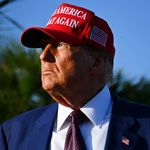
As President Trump weakly attempts to contest the results of last week’s election at home, the endgame of the Xi administration’s efforts to stamp out dissent and democracy in Hong Kong appears to be taking place across the Pacific.
While much of the conflict between the Chinese state and pro-democratic groups in the formerly semi-autonomous zone has taken place on the streets of Hong Kong, Wednesday’s dispute took place in the city’s legislature. Considered both a symbol and a bulwark of the “one country, two systems” policy since the special administrative region was established in 1997, the Legislative Council has condemned China’s recent crackdowns and arrests designed to end protests over mainland encroachment in the territory. On Wednesday, the administration granted itself the power to remove council members who have expressed critiques and fired four lawmakers minutes after the announcement was made. As a result, the remaining 15 members of their pro-democracy bloc resigned in protest.
Claudia Mo, one of the lawmakers who stepped down, described the censorship effort as a move to “sound the death knell of Hong Kong’s democracy fight,” as Beijing could now remove “anyone they found to be politically incorrect or unpatriotic.” The departure of the 19 pro-democracy lawmakers will leave the Legislative Council only with members who support the administration of President Xi, a group of legislators who already made up the majority.
American voices soon reiterated the lawmakers’ cries that the new policy allowing automatic dismissal of dissenting lawmakers would end the very idea of opposition in Hong Kong. Among them were National Security Adviser Robert C. O’Brien, who stated that the “one country, two systems” determination “is now merely a fig-leaf covering … one-party dictatorship in Hong Kong.”
The struggle over the power grab in southeast China is one of two recent attempts to consolidate power for which the Xi administration has faced international condemnation: In the northwestern region of Xinjiang, over 1 million Uyghur Muslims have been placed in concentration camps, with reports of forced sterilizations.
The resignations are the latest in a recent back-and-forth
between Hong Kong and Beijing over authority in the city, which is scheduled to keep its semi-autonomous legal and economic systems until 2047. In June 2019, over 1 million protesters demonstrated against a bill that would allow extraditions to the mainland, a proposal that was dropped due to the pushback. By November of last year, pro-democratic lawmakers came to office in overwhelming numbers in an election with massive turnout, largely understood as a referendum in favor of the summer’s dissent. But by January of this year, emerging COVID measures prevented mass demonstrations, and in June, the Xi administration passed a national security law that cracked down on protesters. In September, pro-mainland lawmakers in the Hong Kong government used the pandemic as pretext to delay an election scheduled for this November for a year.






























